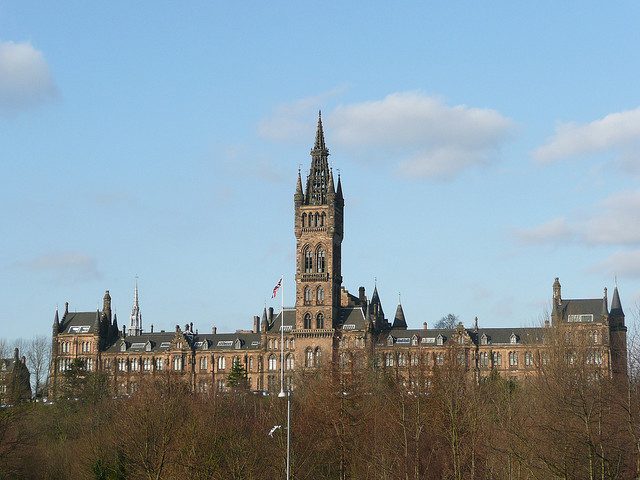As promised, in the beginning of the month we attended the 2015 TEDxUniversityofGlasgow conference – how could we have missed it, with so many inspiring ideas to be spread? We stepped in expecting outstanding speakers and we’re happy to report that our expectations were greatly surpassed. We came out with a generous collection of filters for the world around us: one to make us more aware of the many ways climate change is impacting people around the globe; one through which we can see superheroes; one to help us reevaluate our existence on an atomic level. In case you missed it, here’s a short rundown of the talks that caught our science enthusiast ear:
The conference kicked off with our own editor Peter McGinty’s talk about how vulnerable our planet can be to asteroids and space debris and how research is being focused in this direction through the Stardust 2013 program. The aim of the Stardust network is to train scientists and engineers whose job will be to monitor and deal with asteroids and space debris and further space research. Why is this important? Well, as sci-fi author Larry Niven brilliantly put it, “the dinosaurs became extinct because they didn’t have a space program. And if we become extinct because we don’t have a space program, it’ll serve us right!”.
Another great speaker was Cameron Mackay, who has spent a significant amount of time on expeditions in the Indian Himalayas and Western Greenland, in order to assess the impact of climate change. On his journeys, he’s found surprising contrasts in how people perceive climate in different areas: some places have only seen the disadvantages of climate change (for example, the water shortages in the Indian Himalayas), whereas other regions have witnessed positive changes as well (such as the boost in tourism taking place in Greenland as the glaciers are melting). Cameron is a young, determined Geography student, who believes in spreading the message far and wide, through any means possible. He’s thus documented large portions of his trips on video and timelapse photography, a sample of which we were lucky enough to see during his talk.
On a similar note, Miriam Wilson told the story about how her campaigning led the University of Glasgow to become the first university in the country to completely divest from the fossil fuel industry. The campaign, led by the Glasgow University Climate Action Society, lasted for about a year and involved over a thousand students. The significance of this ruling is great – with enough passion and confidence, students *can* make a difference in global matters, and we hope to see many more similar episodes from fellow universities.
Later on during the day, Dr Adrian Buzatu, who contributed to the ATLAS experiment at CERN and implicitly to the discovery of the Higgs boson, took us on an insightful journey in the search of our origin. By putting in perspective the hierarchy of sciences and how each divides the human experience into its own units, he stopped to focus on the most basic level of organisation of life, the atomic level, bringing into question how the discovery of the Higgs boson fits into the big picture.
Dr Julie Williamson introduced us to a phenomenon which might have passed right over our heads. Not so long ago, a sad, derelict corner near the Boyd Orr building was briefly transformed into a public art show, bursting with sound, light and life – and most people had no idea! The project was part of Dr Williamson’s wider research theme on how people interact with technology in public spaces and this knowledge could be used to transform our immediate environment.
However, the most powerful talk was probably the one given by Lindy Irving, a survivor of depression who has been struggling for a long time to find mechanisms to cope with her disease. Her talk, entitled “Superheroes vs. Stigma”, was focused on just that: how to transform into one’s inner superhero and fight the injustice of stigma. We learned a lot about mustering all the self-confidence we can and projecting it onto society, in order to challenge its attitudes towards mental illness, about what it is like to lose (almost) everything and then find it again and about the day-to-day superhero life of Lindy, who is as inspiring as she is captivating.
We left the Charles Wilson building already looking forward to next year’s conference, as I’m sure everyone else did. Hopefully, we’ll get to meet more inspirational people next year, at the 2016 TEDx event!

